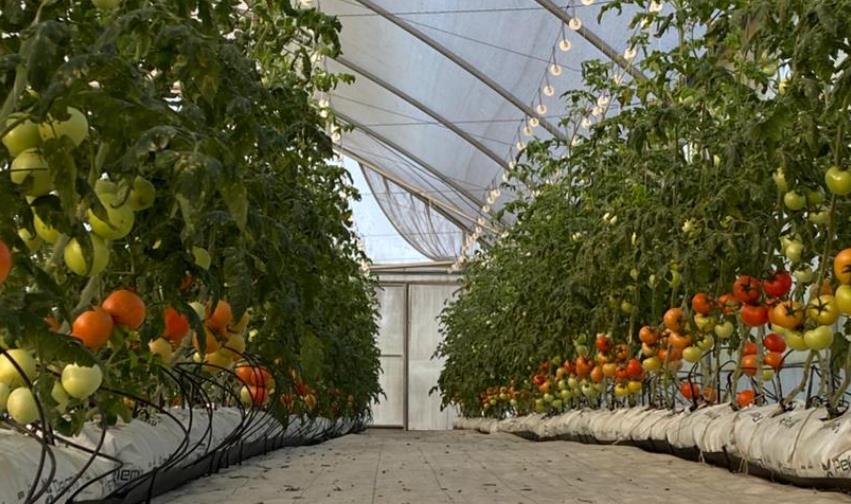Smart Farming with sensor technology
Profyta (https://sites.google.com/view/profyta-smart-farming/) is a farm management company that provides several services to farmers with protected cultivation of vegetables such as hygiene awareness, Mtumbwi system implementation (African version of soilless hydroponic system), team trainings, among others.
By means of the Mtumbwi system for irrigation, they are developing a smart farming system, to irrigate on the demand of the crop, and also they develop an new system to fertigate with local fertilizers instead of importing soluble fertilizers.
Smart farming makes it also possible to produce more sustainably, which means that sensors are used for measuring the circumstances and informing the farmers whether the risk for diseases is low, moderate or high. Then the grower can act on this, by example to de-leave the crop in the middle, to ensure that the light penetrates deeper in the middle of the crop. This is a natural way to stop the development of fungal, bacterial diseases. This one of the goals of this project.
Smart farming contributes to environmental sustainability for several reasons: It saves water, makes disease management more sustainable by minimizing spraying, it leads to better products, which are more healthy. Products are also track and traceable which leads to more responsible and sustainable management of the products.

Tasks for students 2023/2024:
There is already an initial smart farming system in place, which was first developed by the company itself, and the former group also from Eindhoven added the design of a sensor for temperature and humidity, of which data are generated in excel. The present challenge consists in developing this first attempt into a robust comprehensive system for monitoring 2 to 5 greenhouses.
The assignment specifically entails the following elements:
- Perfecting the excel generator
- Develop a tool for graphical presentation of the data
- Turning the initial design of the sensor into a complete and robust weather station.
- The result should be a complete plug-and-play system for continuous analysis of the data, that is able to signal that watering the plants is required, that signals by UV light measurements when fungi needs to be sprayed and/or diseases threaten.
- Explore Pheno type crop-growth.
- Explore what more can be concluded from the data or should be researched further.
- Data and result’s will produce parameters, which can stear several hardware components, like an electric valve.
This assignment is suitable for students from electronics, mechanical engineering, computer science, industrial design.